Note: This is the seventeenth in a series of letters written for those living at the end of the age, whenever that comes in the next fifteen years or the next one hundred and fifty years. We have already released the first part of this book in print. Or you can access the previous chapters here. If you are not already subscribed to this blog and want to ensure you don’t miss any, you can add your name here.
_________________________________
To be an evangelical in rural France is to be a minority of minorities. Even my family has ostracized me. You talk about God using our troubles to transform us, but I don’t see how he does that. I’ve spent my entire life avoiding pain, asking God to end it when it comes, and being angry when he doesn’t. How can I come to appreciate God at work in my suffering?
—Jean-Paul, a young father living in the Loire Valley in France
Dear Jean-Paul,
You ask a critically important question. It has taken most of my life to discover how to embrace God in my suffering. Like many, I grew up with the silly notion that God would protect me from pain. I could quote Scriptures that seemed to suggest it, except for persecution, of course. And, since I live in America, that isn’t supposed to happen.
So, whenever I felt in pain, I would ask God to take it away. Rarely did he, which led me to doubt his love, the quality of my faith, or whether the Bible was true. Even the culture was enamored with the question of suffering. How could a loving God create a world with so much pain?
He didn’t, of course. The suffering in our world does not come from him but from the chaos of a creation out of sync with its Creator and the weakness of humanity with arrogance, greed, and selfishness. Calamities happen, people will take advantage of you; sickness, disease, and injury are a constant threat, and daily needs can overrun you. Looking back, I am amazed at how I missed all the Scriptures about how God works in incredible ways through suffering and that those who walk by faith will often find more trouble because they’re walking against the ways of the world.
So why didn’t I hear more teachings on how to suffer graciously or find what God is doing through it? It seems we would rather hope for a quick miracle and deal with the frustration of it not happening than embrace suffering. Some of the most painful conversations I have are with people who genuinely believe that if God loved them, he would ensure that nothing bad could happen to them that he wouldn’t immediately fix.
So, thanks for your question, Jean-Paul. Let me take a stab at helping you transit pain in a way that brings God’s goodness out of it. Finding God’s love at the extremity of human suffering is a sacred gift. Here are the thoughts that help me when troubles come.
Invite God Along
 I know that seems simple, but it’s easy to push God out of our suffering and try to handle it with our own strength. We do that in several ways. The most common is to blame him. Whether you think he orchestrated or just allowed it won’t matter. How do you run to someone for aid and comfort when you think they’re the source of your pain? He certainly isn’t, but many think he is. However, he can walk us through it, even utilizing it to do a deep work within.
I know that seems simple, but it’s easy to push God out of our suffering and try to handle it with our own strength. We do that in several ways. The most common is to blame him. Whether you think he orchestrated or just allowed it won’t matter. How do you run to someone for aid and comfort when you think they’re the source of your pain? He certainly isn’t, but many think he is. However, he can walk us through it, even utilizing it to do a deep work within.
Another way we push him aside is to try to ignore our pain. Denial and overcompensating with coping mechanisms will crowd him out as well. Embrace the pain you’re in and invite him into it. This is where the children of the New Creation can shine brightest. When you find redemption in the difficulties of this world and demonstrate what it is to be his beloved child through it, the world is yours.
Finally, we push him away by only thinking that our circumstances will be resolved through healing or miraculous provision. Many people mistakenly set their perception of God’s love based on how he answers their prayers or resolves their circumstances.
That’s not to say we won’t rant and question him when we are surprised by pain but don’t expect many answers there. When we treat God as our adversary, hearing him say, “I’m sorry you’re going through this,” is nearly impossible. And knowing he’s empathetic to our struggle allows us to lean into his care and listen to his heart. So, hopefully, when trouble hits, we can find a way to settle into his love and invite him inside our pain. The fellowship of suffering is deep and intimate.
Embracing God at moments of extremity always involves surrender, laying down my fears and accusations, and being determined to find out how he loves me through this. Whether it is a marriage breaking up, grief, cancer diagnosis, betrayal of a friend or family, or needs bigger than my resources, I find a place of surrender to him. “If possible, take this cup from me, but if not, I choose to trust you through it” is where I best recognize him.
It allows my heart to stay open to a miracle should he desire it but, at the same time, honor the pain that has entered my life. When God is no longer your adversary or even the reluctant Father who won’t give you what you want, you’ll realize that no matter how dark things get, he is working for you. From his experience, Jesus knows the pain that life can deal out and how it is to find his Father in it. When you do that, you’ll begin to see his way through it and the fruit he is developing in you.
He can show you if you suffer from reaping something you have sown. If you suffer because of your arrogance, indulgence, and selfishness, he will still be with you, leading you to repentance, humility, and further freedom. However, undeserved suffering opens doors into the depths of God’s heart. That’s why Peter warned the early Christians to take care to ensure they don’t deserve what they suffer. Hardship caused by the sin or injustice of others opens a greater pathway to God’s heart.
Embrace Hardship as Discipline
One of the things that helps me face suffering comes from Hebrews. “Endure hardship as discipline; God is treating you as his children.” (Hebrews 12:7) If you think of that as chastisement, you’ll miss the point entirely. He’s not referring to an angry father punishing you because of his disappointment; this is a loving Father who uses the brokenness of this world to teach us the discipline of his ways.
Every trouble we encounter is a training ground to deepen our walk with him. God recycles everything, even the injustice of others, as a tool to draw us more deeply into his way of thinking. What you go through today prepares you for what may yet come down the road. We always hope our current moment of suffering is our last, but life in a broken world will continue to throw difficulties at you, and all the more as we come to the end of the age.
Those of us raised in more comfortable circumstances usually have a real aversion to pain. We’ll do anything to avoid it. And our only approach when it comes, is to seek immediate relief, even trying to enlist God’s help to do that. None of this prepares us to manage our pain redemptively.
Paul had a different approach. Listen to how he negotiated the horrible things that befell him: “We are hard pressed on every side, but not crushed; perplexed, but not in despair; persecuted, but not abandoned; struck down, but not destroyed. We always carry around in our body the death of Jesus, so that the life of Jesus may also be revealed in our body.” (2 Cor 4:8-10) Paul drew a fantastic distinction between what could happen to him and what Jesus could do with it on the inside.
Hardship offers us a doorway to transformation as well as a doorway to anger and bitterness. If we can embrace whatever suffering comes our way and, more significantly, embrace God inside of it, we’ll find the door to life. The writer of Hebrews adds this, “No discipline seems pleasant at the time, but painful. Later on, however, it produces a harvest of justice and peace for those who have been trained by it.” (Hebrews 12:11)
A friend from South Africa and I recently discussed how love cannot be learned as a technique without being experienced. He added, “But we can learn how to lean deeper into love, accept suffering as the training ground to diminish the ego, and so learn how to let love flow out even to those who hate us and those who spitefully use us.”
That is a powerful way to live. None of us like to have our ego diminished, but that is how we learn to love in this world. Even Jesus learned obedience amid loud cries and tears through the things that he suffered. (Hebrews 5:7-8) How important would it be for us to learn the same way? Don’t waste your pain; let it change you, leaving you more surrendered to the God who loves you more than anyone else ever has or ever will.
If you want his glory to be revealed in you, learn to embrace hardship rather than run from it. “Rejoice; inasmuch as you participate in the sufferings of Christ, so that you may be overjoyed when his glory is revealed.” (1 Peter 4:12–13)
Ask Answerable Questions
The first question we are prone to ask in times of trouble is, “Why?” Why me? Why didn’t God protect me from this? I have discovered that ‘why’ questions almost always lead down a darker road of grief and doubt. In my experience, they are usually impossible to answer because our finite perspective is too limited for a satisfyingly logical answer.
I used to challenge God with those questions before I learned to live in his love. “Why are you doing this to me?” “Why won’t you give me a miracle to take it away?” I have even prayed vengeance on those who have caused my anguish and, by doing so, lost sight of love. Thus, for all my whining, I never got a helpful answer.
I discovered a few years ago that I had stopped asking such questions without realizing it. Two decades ago, I was talking to a friend who wanted me to explain why God allowed his wife to leave him. It was then I recognized how long it had been since I raised that kind of question with God, and it felt awkward. That’s when I realized my questions had changed from why to where or how. “Where are you in this pain?” “How are you making your love available to me here?” “How do you want me to navigate this trial?”
Answers to those questions seep into my heart over time. I switched to those questions because they were more answerable. They allowed me to grasp his love and wisdom rather than seeking some contrived justification unbefitting his character.
Stay Inside the Day
We add to our suffering whenever we get too far ahead of ourselves. Pain is best managed one day at a time. Rather than worrying about how long it will last, it is far better to ask, “Do I have what I need to get through today?” That’s all we are promised. Grace is meted out in daily portions. Jesus explicitly warned us not to worry about tomorrow, for today has enough challenges of its own. (Matthew 6:34)
When I was diagnosed with a fractured vertebra and the cancer that caused it, I was shocked. I had no idea this was coming. As my doctors charted out my next few months, including back surgery and a lifetime of chemotherapy, it was too overwhelming to consider. I intentionally decided to take on this challenge one day at a time. What do I need to get through this day?
Did I pray to be healed? Who wouldn’t if you believe he does such things? But I did not put all my hope in a miracle I couldn’t guarantee. So, I would talk to Jesus about healing, but I would look for his leading to walk through each day of this. I certainly was not going to try and earn it.
That meant I would do whatever I saw to do each day. Sara and I made decisions about our medical options, and when that became back surgery, I did what I could each day to manage the pain and keep looking to him. I left my questions in trust with Jesus, and I knew he would answer them when I needed them.
Also, staying inside the day allowed me to look for his presence, joy, and beauty each day. If I wait for joy until a miracle, medicine, or endurance has its work, I’ll be worn out with sorrow. Each day, find something that brightens your heart by getting out into nature or gazing at it through your window or video. Listen to music that calms you. Talk to people who inspire you.
Don’t Go It Alone
None of us were meant to bear our struggles alone. Invite your community along for the ride as a source of encouragement and wisdom. This is not posting your need on Facebook or submitting a prayer request to the congregation’s website or bulletin. Invite three or four people to walk through the crisis with you.
Ideally, these relationships are already close. You have offered them the same presence during their struggles that you now ask of them. You know they will talk to Jesus about you and allow him to put Scriptures or other encouragements on their heart. Hopefully, you will check in with each other every few days.
With my recent cancer diagnosis, I had three friends located in three different countries who I knew were suffering from this same disease. Their empathy and information were a calming influence as my own journey unfolded.
Protracted suffering or a chronic condition can provide a unique challenge here. Ensure you are not just using your friends as targets of grumbling or complaining. You can be honest about that too but don’t stay there. People who want to be alongside you will be exhausted by hopeless complaints or only praying for a miracle that is not coming. You are looking for a conversation about how God navigates your heart through it, so there is hope and encouragement. That may not be an easy road to find, but community will make it far easier than going it alone.
Look for Ways to Be Redemptive
 Just because you are in need doesn’t mean you have to focus all your attention on yourself. Pain is easier to negotiate when you can find ways to bless others.
Just because you are in need doesn’t mean you have to focus all your attention on yourself. Pain is easier to negotiate when you can find ways to bless others.
Every day, I’m reminded how much Sara discovering her trauma has reshaped the trajectory of both of our lives into such an incredibly beautiful space. It has been excruciatingly painful, but I love the fresh air here, clearer perspective, and greater trust in Jesus through uncertainty. And her ability to encourage others in similar struggles helps her navigate her own.
When I see how holding my pain encourages others to navigate their own, my heart rejoices, and my endurance is enhanced. As you discover his goodness during dark days, look for ways to share it with others. Here’s where suffering does its most beautiful work. When we are less focused on ourselves, the load becomes easier to bear. And having traversed deep waters, you’ll be able to stand with those who face them as well.
When you suffer injustice from others, you’ll never want to do it to anyone else. When you are lied about or betrayed by someone you love and don’t grow bitter, you’ll never want to do it to anyone else. When you’ve suffered heartbreak, disease, or grief, you’ll have more empathy to offer others and wisdom as well.
Don’t Forget the Glory to Come
In the verse preceding Paul’s statement about the Creation longing for the children of God to be revealed, which is the theme verse of this book, he wrote, “I consider that our present sufferings are not worth comparing with the glory that will be revealed in us.” (Romans 8:18)
Suffering in Christ always gives way to glory. That’s why it’s worth it, Jean-Paul, to embrace Jesus in our pain and suffering. Not only can he get you through it, but he will leave you a better person in its wake. While we can often see how that bears fruit in this life, we don’t yet know how that will reveal his glory in the ages to come.
But I suspect it most certainly will.
_________________________________
Order Part 1 of It’s Time from Amazon in Kindle or paperback.




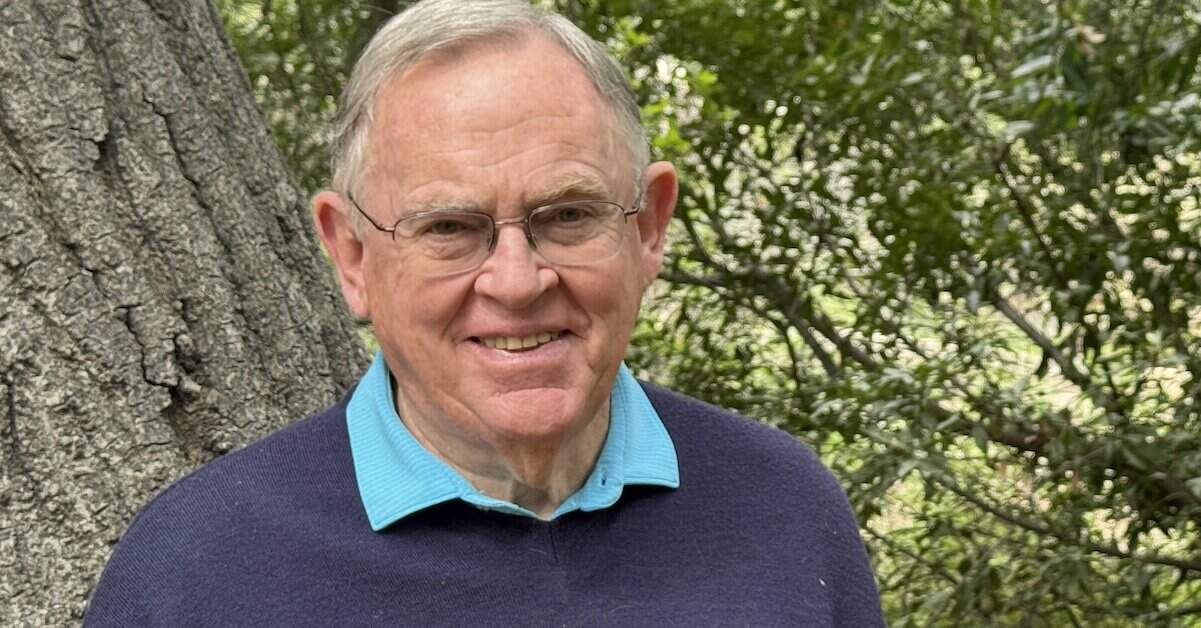
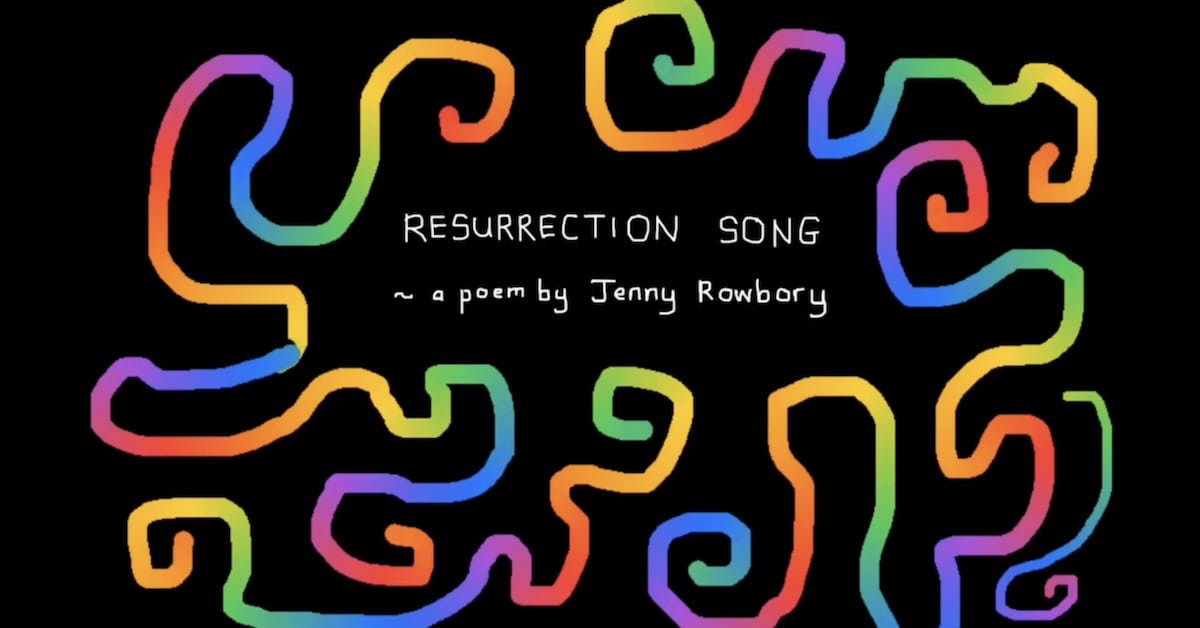
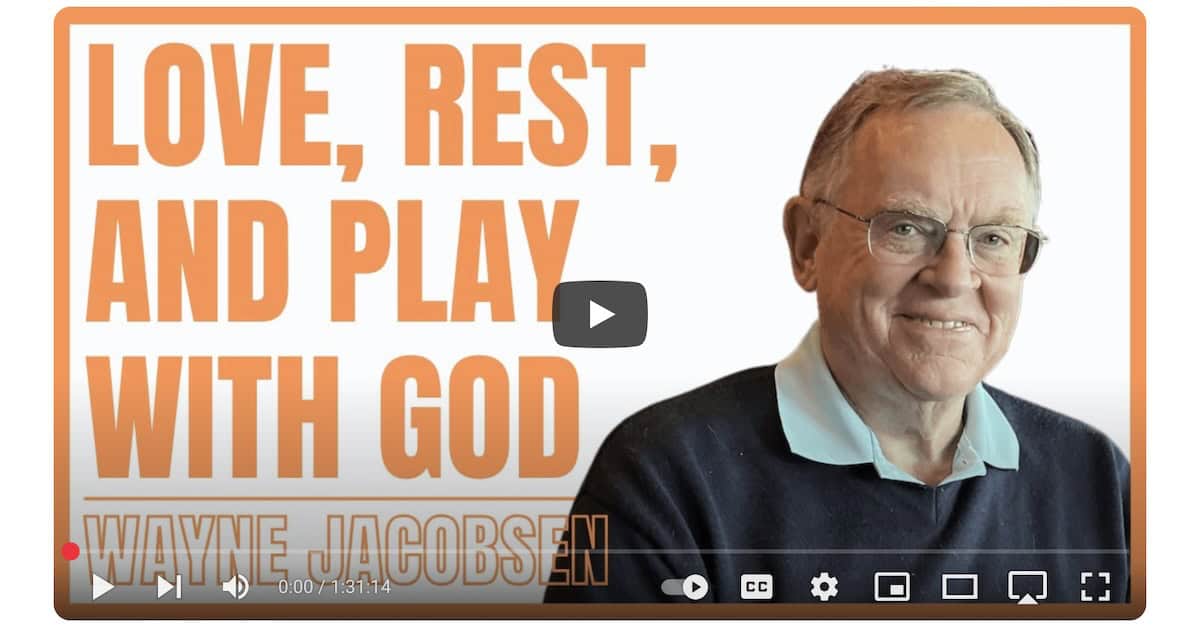
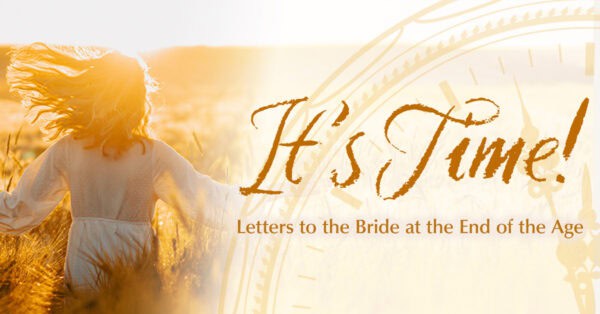
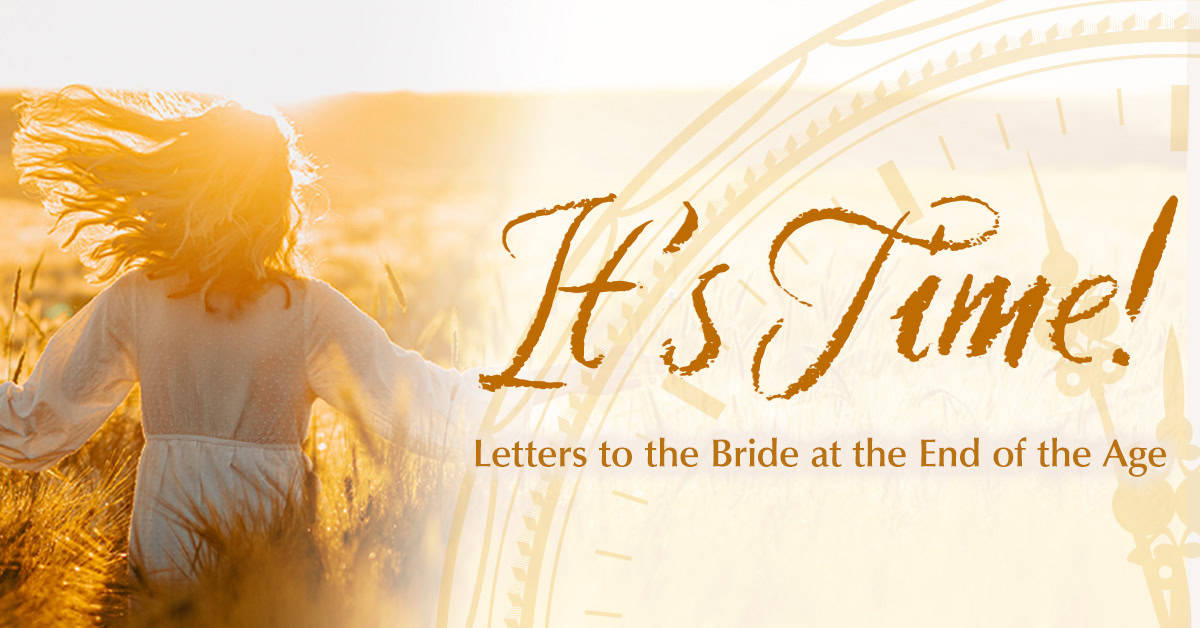
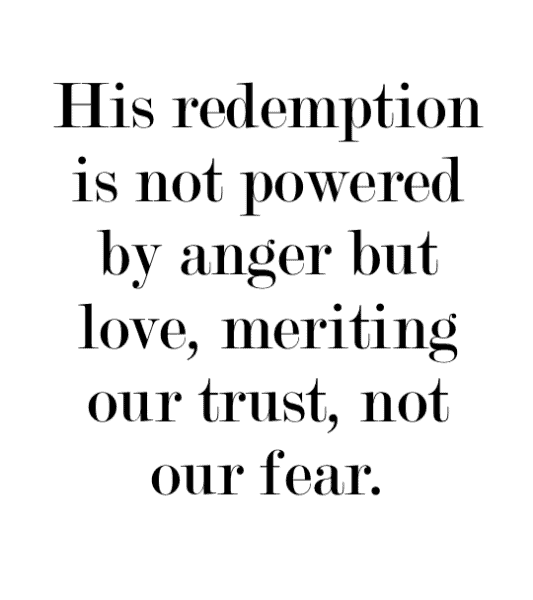 The night before he died on the cross, Jesus was “consumed with sorrow.” He went to the Garden of Gethsemane to sort things out with his Father and invited three of his disciples to share that intimate moment. His pain was immense, distressed enough that his sweat became like drops of blood. What did he hope to gain by having them there, or what would it give them?
The night before he died on the cross, Jesus was “consumed with sorrow.” He went to the Garden of Gethsemane to sort things out with his Father and invited three of his disciples to share that intimate moment. His pain was immense, distressed enough that his sweat became like drops of blood. What did he hope to gain by having them there, or what would it give them?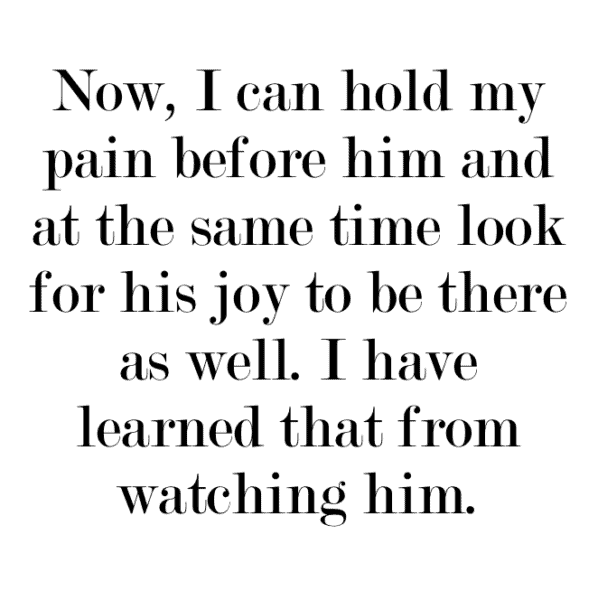 Ecstasy and Agony
Ecstasy and Agony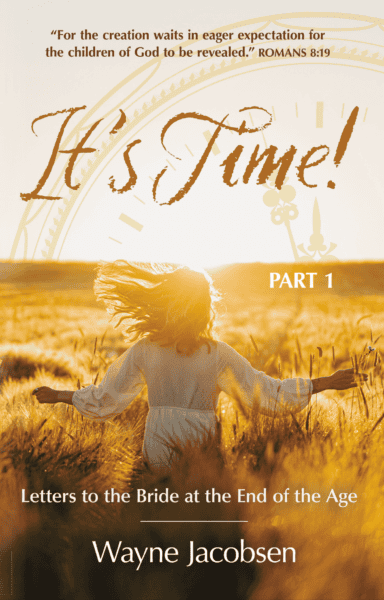 Order Part 1 of It’s Time from Amazon in Kindle or paperback
Order Part 1 of It’s Time from Amazon in Kindle or paperback
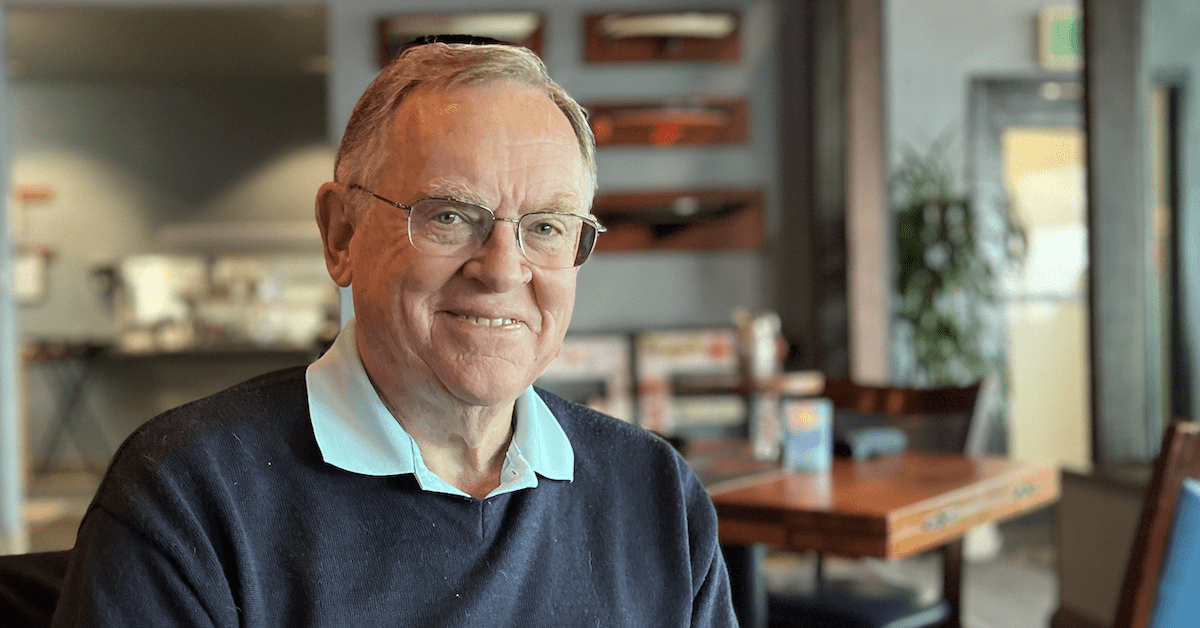
 I know that seems simple, but it’s easy to push God out of our suffering and try to handle it with our own strength. We do that in several ways. The most common is to blame him. Whether you think he orchestrated or just allowed it won’t matter. How do you run to someone for aid and comfort when you think they’re the source of your pain? He certainly isn’t, but many think he is. However, he can walk us through it, even utilizing it to do a deep work within.
I know that seems simple, but it’s easy to push God out of our suffering and try to handle it with our own strength. We do that in several ways. The most common is to blame him. Whether you think he orchestrated or just allowed it won’t matter. How do you run to someone for aid and comfort when you think they’re the source of your pain? He certainly isn’t, but many think he is. However, he can walk us through it, even utilizing it to do a deep work within. Just because you are in need doesn’t mean you have to focus all your attention on yourself. Pain is easier to negotiate when you can find ways to bless others.
Just because you are in need doesn’t mean you have to focus all your attention on yourself. Pain is easier to negotiate when you can find ways to bless others.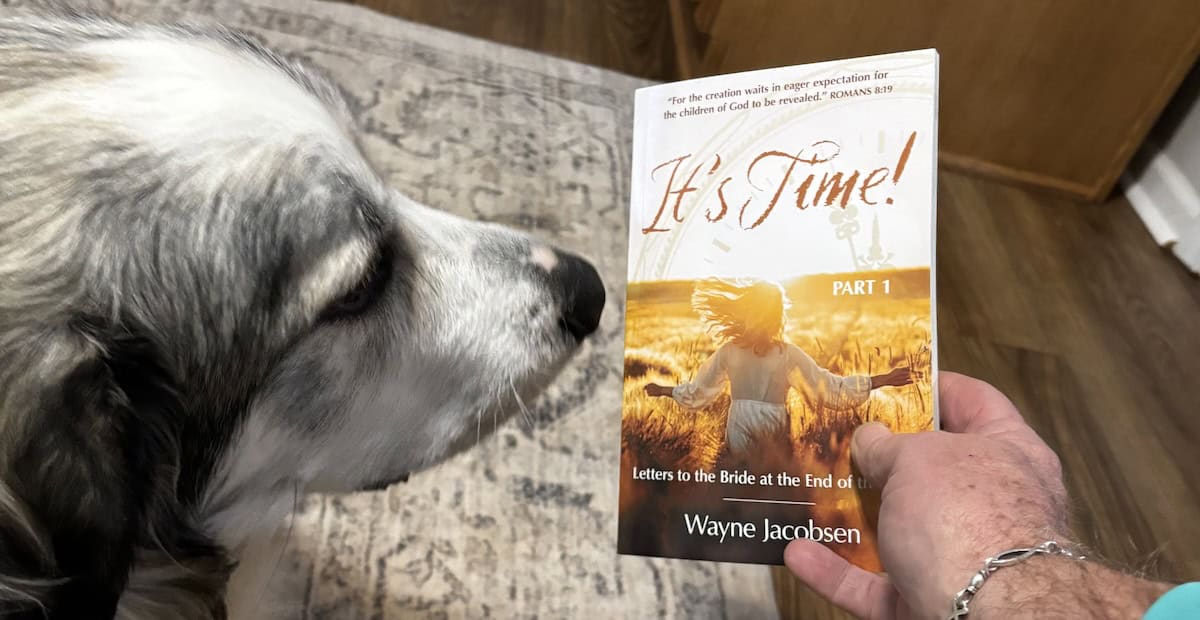
 In these last days, it is time for the wise to be bold without losing a sense of humility. They may get drowned out by more selfish voices, but their words will be there for those who have an ear to hear.
In these last days, it is time for the wise to be bold without losing a sense of humility. They may get drowned out by more selfish voices, but their words will be there for those who have an ear to hear.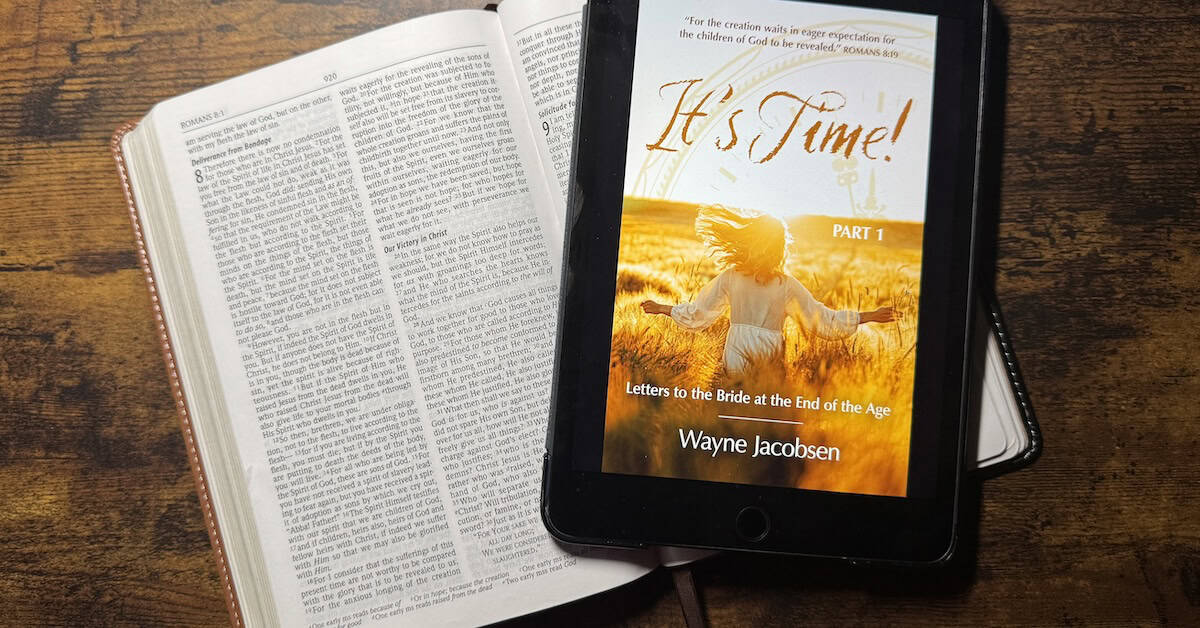

 A Resilient Trust
A Resilient Trust